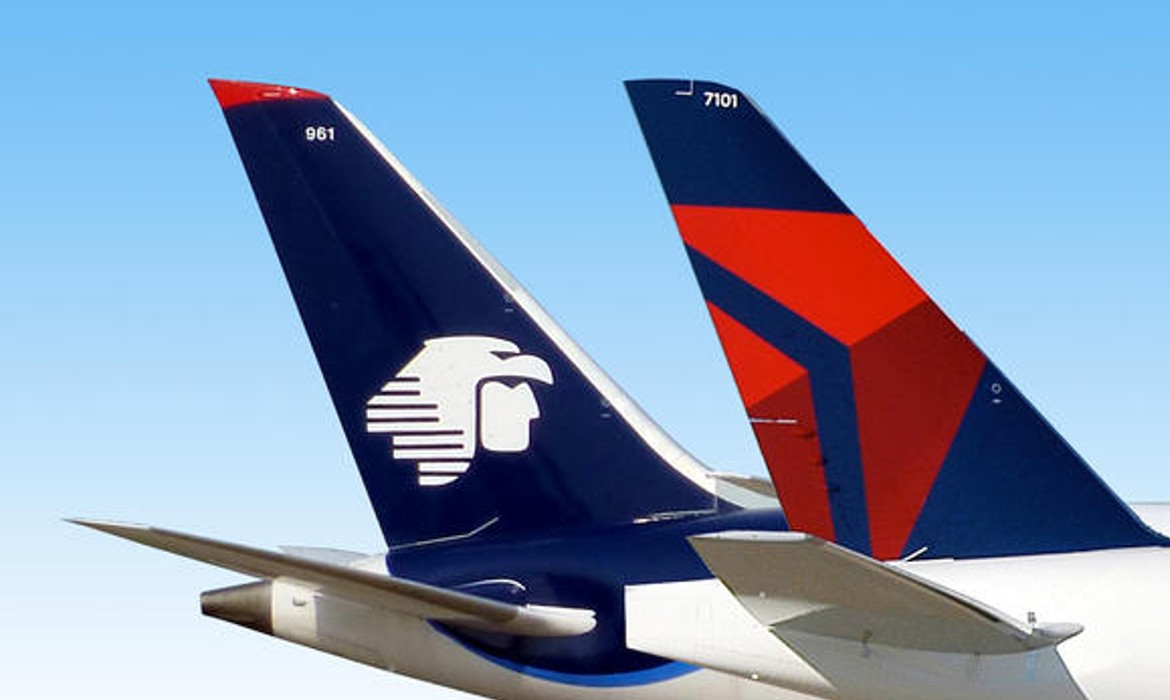
Delta and Aeroméxico stated that ending their alliance would lead to the cancellation of 24 routes between Mexico and the United States, resulting in an impact of $800 million and paving the way for ticket price increases.
This was highlighted by Ed Bastian, CEO of Delta, and Andrés Conesa, CEO of Aeroméxico, in an article published in the Atlanta Journal Constitution newspaper. They recalled the benefits brought by the Joint Cooperation Agreement (JCA), which began in 2016, as well as the impacts that its termination would cause.
They recalled that in January of this year, without prior notice, the Department of Transportation tentatively proposed to revoke approval “not due to any concern related to service with Delta or Aeroméxico, but due to an unrelated diplomatic dispute concerning Mexico’s international aviation policy, a dispute over which neither of our airlines has any control.”
“The consequences of undoing the partnership agreement are harmful and far-reaching for consumers, communities, and American and Mexican businesses. If the Department of Transportation moves forward, nearly two dozen flight routes are at significant risk of cancellation: five of these routes are direct to cities in Mexico from Hartsfield-Jackson Atlanta International Airport,” they stated.
They mentioned that just last year, over 650,000 travelers flew directly to the country on flights from Atlanta. “In total, this significant loss in routes would result in one million fewer travelers between the United States and Mexico each year. Consumers would have fewer travel options as competition in the market decreases and, ultimately, they could pay higher ticket prices, with an estimated total loss of benefits of $800 million.“
“They pointed out that trade between the two countries reached a record $860 billion in 2023. Therefore, they considered that the improved cross-border access created by the Delta-Aeroméxico partnership has been a significant driver of that economic success. “That is why ending the agreement would result in hundreds of millions of dollars in lost gross domestic product for both countries, in addition to job losses,” they explained.
They reported that according to the US International Trade Administration, 12.5 million Mexicans traveled in 2022, representing 24% of total foreign arrivals, therefore, annual tourism spending between the two countries could drop by $200 million and $160 million, respectively, if the agreement is dissolved.
They reported that in a new survey, beyond party lines, 65% of US voters oppose canceling this partnership, and over 80% say risking thousands of jobs would be harmful. Meanwhile, 70% of Mexican-American voters oppose canceling the agreement, and over 80% say the loss of flight options between the United States and Mexico would be harmful.
“As CEOs of Delta and Aeroméxico, we recognize the importance of the diplomatic goals of both nations. But we also agree that punishing consumers and endangering thousands of jobs in both nations is a punitive and counterproductive approach that will not produce a positive outcome for the Department of Transportation. There is ample time for both governments to engage in new negotiations and achieve significant progress without harming the American and Mexican peoples,” they argue.
They recalled that over the past seven years, they have served over 45 million passengers with affordable, efficient, and convenient routes to and from each country. Connecting cities such as Atlanta, Raleigh, New York, Detroit, Minneapolis, Salt Lake City, and Los Angeles, among others, with daily direct flights to multiple destinations in Mexico, including key geopolitical, industrial, and tourist destinations such as Mexico City, Guanajuato, Monterrey, and Querétaro.
Comment and follow us on X: @GrupoT21














